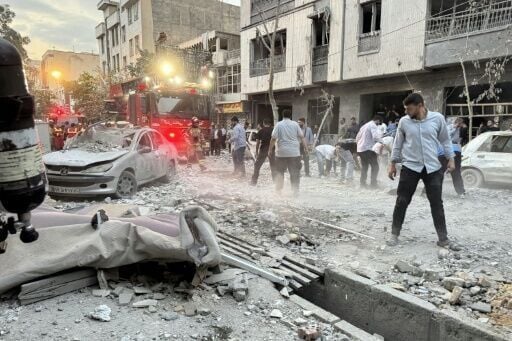By Ayomide Otitoju
Israel’s unprecedented airstrikes on Iran on Friday have dealt a significant blow to Tehran’s military and intelligence infrastructure, raising serious questions about its capacity to mount a credible response, analysts say.
The Israeli military said it targeted over 100 locations, including nuclear and military facilities. Iranian media confirmed the deaths of senior officials, including Armed Forces Chief of Staff Mohammad Bagheri and Revolutionary Guard Corps commander Hossein Salami, as well as several top nuclear scientists.
Iran’s Supreme Leader, Ayatollah Ali Khamenei, vowed a “bitter and painful” response, but security experts say the Islamic Republic’s options appear constrained.
“This is an intelligence defeat of existential proportions,” said Ali Fathollah-Nejad, director of the Center for Middle East and Global Order (CMEG). “It exposes the vulnerability of Iran’s military, political leadership, and nuclear infrastructure.”
Friday’s strikes reportedly included a hit on the Natanz nuclear facility, a key site in Iran’s uranium enrichment programme. Although Iranian officials claimed only surface-level damage, British intelligence firm Janes assessed the impact as likely “significant.”
The offensive comes amid heightened tensions over Iran’s nuclear programme, which Western nations allege is moving closer to weaponization—an accusation Tehran denies. On Thursday, Iran’s Atomic Energy Organisation pledged to significantly ramp up uranium enrichment, following a UN report citing non-compliance with international obligations.
Ali Vaez of the International Crisis Group described the Israeli operation as “sweeping in scope and sophistication,” warning that Tehran may be struggling to formulate a strategic response.
“The regime seems to be in a bind,” added Sorbonne University analyst Clément Therme. “Targeting US bases could provoke further escalation, while attacking Israel outright would expose Iran’s limited military reach.”
Despite public urging by former U.S. President Donald Trump to allow diplomacy to proceed, Israel moved ahead with the strikes. Trump’s Middle East envoy, Steve Witkoff, had been scheduled to meet Iranian officials in Oman on Sunday for a sixth round of indirect talks on reviving a nuclear agreement.
Ellie Geranmayeh of the European Council on Foreign Relations said the timing of the strikes may have been aimed at derailing those negotiations.
“It is highly unlikely Iran will attend the Oman talks under these conditions,” she said.
Iran’s economic struggles further complicate its position. A Western diplomat recently described the nation’s economic situation as “cataclysmic,” citing a desperate need for sanctions relief, foreign investment, and banking reforms.
While the U.S. says it remains committed to dialogue, Trump warned Tehran: “Make a deal, before there is nothing left.”
But Vaez cautioned that the strategy could backfire.
“This could provoke Tehran into accelerating its pursuit of a nuclear deterrent rather than negotiating,” he said.










